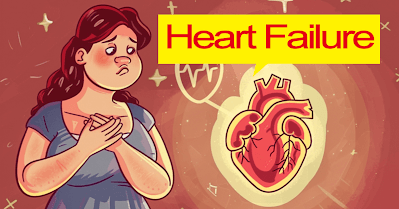New Congestive Heart Failure Treatments for Elderly: Overview
If you've been diagnosed with congestive heart failure, the feeling of your chest constricting can be scary. With congestive heart failure, the heart’s capacity to pump blood cannot keep up with the body’s need. As the heart weakens, blood begins to back up and force liquid through the capillary walls. The term “congestive” refers to the resulting buildup of fluid in the ankles and feet, arms, lungs, and/or other organs. Almost 6 million Americans have congestive heart failure. However, with the new congestive heart failure treatments for elderly, patients can recover to good health.
New Congestive Heart Failure Treatments for Elderly: Understanding Congestive Heart Failure
Congestive heart failure (CHF), as defined by the American College of Cardiology (ACC) and the American Heart Association (AHA), is "a complex clinical syndrome that results from any structural or functional impairment of ventricular filling or ejection of blood.” Ischemic heart disease is the leading cause of death worldwide and also the leading cause of CHF. CHF is a common disorder worldwide with a high morbidity and mortality rate. With an estimated prevalence of 26 million people worldwide, CHF contributes to increased healthcare costs, reduces functional capacity, and significantly affects quality of life. It is imperative to diagnose and effectively treat the disease to prevent recurrent hospitalizations, decrease morbidity and mortality, and enhance patient outcomes.
New Congestive Heart Failure Treatments for Elderly
Recent advancements in CHF treatments offer new hope for elderly patients. Personalized medication regimens, including new drug classes that improve heart function and reduce symptoms, are becoming more common. Additionally, advanced medical devices, such as implantable cardioverter-defibrillators (ICDs) and cardiac resynchronization therapy (CRT), help regulate heart rhythms and improve pumping efficiency. Lifestyle modifications, including tailored exercise programs and dietary adjustments, further support overall heart health and enhance quality of life for seniors.
New Congestive Heart Failure Treatments for Elderly: Conclusion
Understanding the sneaky signs of heart failure and treatment options is essential for early detection and effective management of this serious condition. By recognizing the subtle symptoms and seeking timely medical advice, individuals can take proactive steps to improve their heart health. Treatment options, ranging from medications and lifestyle changes to advanced medical interventions, offer hope and improved quality of life for those living with heart failure. Stay informed, stay vigilant, and prioritize your heart health.

